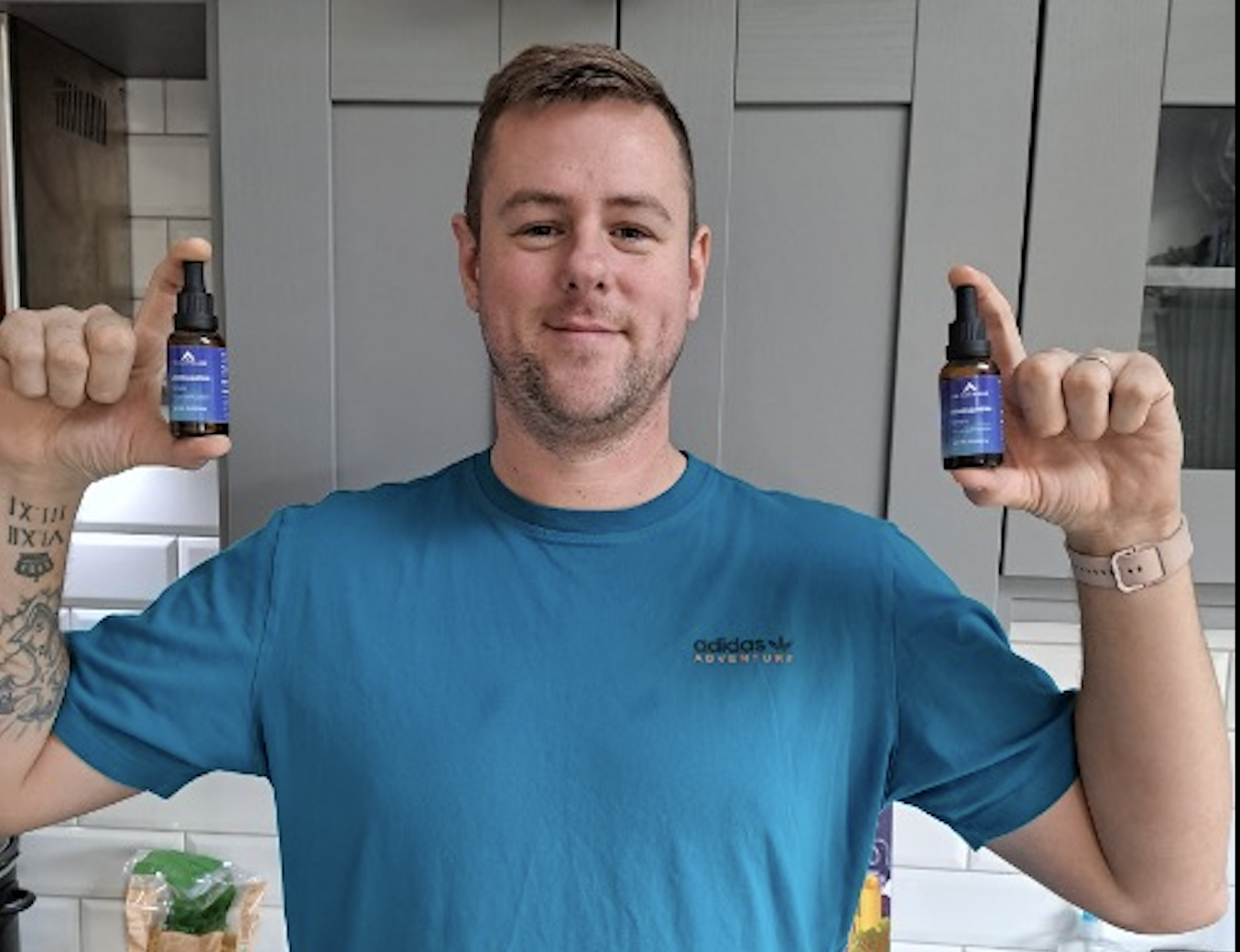How to Actually Start CBD (and Get Results)
CBD can be a game-changer. But only if you take it the right way. After years of working with customers, digging into the science, and building products around real medical studies—not marketing fluff—I’ve noticed something: Most people don’t get results from CBD because they start wrong. Wrong product. Wrong dose. Wrong expectations. So whether you’re brand new to CBD or just feel like it “never really worked for you,” this guide will walk you through how to actually start using CBD in a way that helps you feel the difference. Step 1: Define Your Primary Goal Before anything else, you need to ask: What do I want CBD to help with? Your answer should guide the product you choose. Here’s how I recommend breaking it down: If You’re Dealing with Stress or Anxiety: Start with CBD Calm — our 10% full-spectrum CBD oil. This is the go-to for first-time users and those looking for calm throughout the day. It’s loaded with 1000mg CBD in just 10ml and has earned praise like: “My anxiety is better but the big difference is in my sleep.” – Sofia “Very high standard. Helps me relax with no side effects.” – Patrick “I’m calmer and able to think better, with clarity.” – Niltelane This oil is non-addictive, third-party lab tested, and backed by our 60-day better-than-risk-free guarantee. If Pain or Inflammation is the Issue: Go straight to the Nurocalm Duo — our 30% full-spectrum CBD oil infused with Turmeric Curcumin and Black Pepper, paired with a free CBD cream. This combo targets pain from both inside and out: Use the oil internally (1–2 drops daily) Use the cream on sore joints or muscles “I found the turmeric oil to definitely help more with pain than the standard oil.” – Michael H “The CBD Turmeric Infused Oil is exceptional in anti-inflammatory & pain relief.” – Sharon “Much more movement. Pain and stiffness nearly gone.” – Elaine This is for those who want a safe, effective alternative to painkillers. If Sleep is What You’re After: Go with CBD Snooze Oil. This 10% CBD oil is combined with L-theanine, Chamomile, and Magnesium for true relaxation. We also include free Reishi Mushroom drops in our Sleep Bundle. “Done wonders for my insomnia and anxiety.” – Ana “The quality is good and I trust Dr. Hemp Me to be a reliable source.” – Celia Step 2: Dose Daily, Not Occasionally CBD isn’t a quick-fix like caffeine or painkillers. It works best when taken consistently. Start with a moderate dose: CBD Calm: 3–5 drops twice daily Nurocalm Duo: 1–2 drops per day + cream on affected areas Snooze: 4–6 drops before bed Stick with it for at least 7–10 days. Most people feel the effects within the first few days—better sleep, less tension, reduced pain. Step 3: Track the Subtle Wins CBD works in the background. You might not feel it hit like a painkiller, but give it a few days and you’ll notice: Better mood More energy Fewer interruptions to your sleep Easier mornings “I have no more anxiety attacks… depressive symptoms are manageable… and I sleep through.” – Katja Track changes with a quick log: How did you sleep? How’s your pain level? Did you feel calmer today? Step 4: Stack or Adjust as Needed Here’s how to build your routine: Morning: CBD Calm for focus and anxiety control Evening: CBD Snooze Oil or Reishi for deep sleep Daily (for pain): Nurocalm Duo internally + cream externally For cognitive support: Add Lion’s Mane to Calm or Snooze Small tweaks lead to big improvements over time. Common Mistakes to Avoid Taking CBD once, expecting magic. Not aligning product with goal (e.g., using Calm for pain). Using low-quality, untested oils (many store-bought brands don’t work). Ignoring dosage consistency. Already Tried CBD and Didn’t Feel It? Here’s why: Your dose was too low. You didn’t take it long enough. You chose the wrong product for your issue. That’s where we come in. “I tried 3 other brands before Dr. Hemp Me. This is the only one that worked.” – Gunnar J “Started on 20%, switched to 10%. Can’t tell the difference – both are fantastic.” – Raymond M Need help picking the right product or routine? Just hit reply or email me directly. brian@drhempme.com Why Dr. Hemp Me? We’ve helped over 13,000 customers across Ireland and Europe get better sleep, relief from chronic pain, and calmer minds. 60-Day Better Than Risk-Free Guarantee 3rd Party Lab Testing Next-Day Delivery (Ireland) Formulas based on real medical studies We’re not here to sell fluff. We’re here to get you results. Try CBD the right way—based on science, not marketing. Start Now with the Formula That Fits Your Life: CBD Calm – 10% Oil for Stress & Anxiety CBD Snooze Oil + Free Reishi for Sleep Nurocalm Duo – 30% CBD Oil with Turmeric + Free Cream Consistency is key. Give it 7–10 days. You’ll know.




